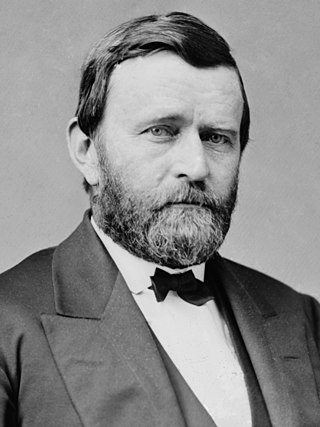
The 1868 United States presidential election was the 21st quadrennial presidential election, held on Tuesday, November 3, 1868. In the first election of the Reconstruction Era, Republican nominee Ulysses S. Grant defeated Horatio Seymour of the Democratic Party. It was the first presidential election to take place after the conclusion of the American Civil War and the abolition of slavery. It was the first election in which African Americans could vote in the reconstructed Southern states, in accordance with the First Reconstruction Act.
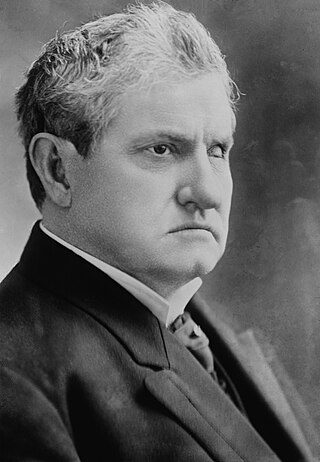
Benjamin Ryan Tillman was a politician of the Democratic Party who served as governor of South Carolina from 1890 to 1894, and as a United States Senator from 1895 until his death in 1918. A white supremacist who opposed civil rights for black Americans, Tillman led a paramilitary group of Red Shirts during South Carolina's violent 1876 election. On the floor of the U.S. Senate, he defended lynching, and frequently ridiculed black Americans in his speeches, boasting of having helped kill them during that campaign.
The Radical Republicans were a faction within the Republican Party originating from the party's founding in 1854—some six years before the Civil War—until the Compromise of 1877, which effectively ended Reconstruction. They called themselves "Radicals" because of their goal of immediate, complete, and permanent eradication of slavery in the United States. They were opposed during the war by the Moderate Republicans, and by the Democratic Party. Radicals led efforts after the war to establish civil rights for former slaves and fully implement emancipation. After unsuccessful measures in 1866 resulted in violence against former slaves in the rebel states, Radicals pushed the Fourteenth Amendment for statutory protections through Congress. They opposed allowing ex-Confederate officers to retake political power in the Southern U.S., and emphasized equality, civil rights and voting rights for the "freedmen", i.e., former slaves who had been freed during or after the Civil War by the Emancipation Proclamation and the Thirteenth Amendment.
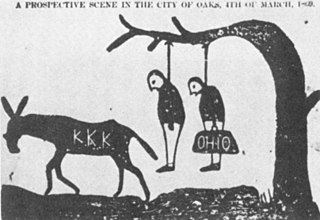
In United States history, the pejorative scalawag referred to white Southerners who supported Reconstruction policies and efforts after the conclusion of the American Civil War.
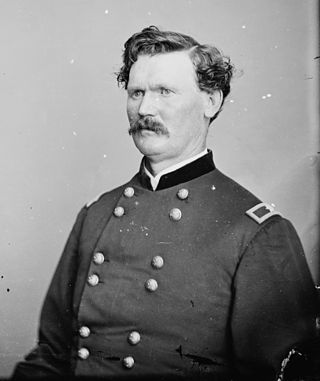
Robert Kingston Scott was an American Republican politician, the 74th governor of South Carolina, and an officer in the Union Army during the American Civil War. In 1891 he built a Queen Anne Italianate Victorian home in Napoleon, Ohio and lived there until his death in 1900. It still stands to this day in Napoleon on the corner of W. Clinton Street and Haley Ave.
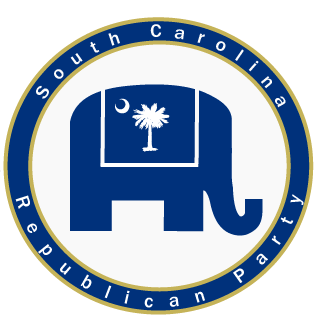
The South Carolina Republican Party (SCGOP) is the state affiliate of the national Republican Party in South Carolina. It is one of two major political parties in the state, along with the South Carolina Democratic Party, and is the dominant party. Incumbent governor Henry McMaster, as well as senators Tim Scott and Lindsey Graham, are members of the Republican party. Graham has served since January 3, 2003, having been elected in 2002 and re-elected in 2008, 2014, and 2020; Tim Scott was appointed in 2013 by then-governor Nikki Haley, who is also a Republican.
The Independent Republican Party of South Carolina was a political party of South Carolina during Reconstruction. It was founded in 1872 to oppose the election of Franklin J. Moses Jr. for Governor of South Carolina after he had been nominated by the Republicans on August 21, 1872. Former governor James Lawrence Orr denounced the selection of Moses and led the formation of a new party.
The Conservative Party of South Carolina was a political party of South Carolina during Reconstruction. It was founded in 1874 by James Chestnut from the State Tax Union to provide an organization for the mobilization of white voters. The absence of an active and statewide Democratic Party led many Democrats to become members of the Conservative Party for the election of 1874. The reemergence of a strong Democratic Party for the election of 1876 ended the Conservative Party.

The 1876 South Carolina gubernatorial election was held on November 7, 1876, to select the governor of the state of South Carolina. The election campaign was a referendum on the Radical Republican-led state government and their Reconstruction policies. Opponents disputed the challenger Wade Hampton III's victory, gained by a margin of little more than 1100 votes statewide. But he took office in April 1877, after President Hayes withdrew federal troops as a result of a national Democratic compromise, and the incumbent Daniel Henry Chamberlain left the state.

The 1868 South Carolina gubernatorial election was held for two days from June 2 to June 3, 1868, to elect the governor of South Carolina; elections for statewide offices were held following the ratification of the South Carolina Constitution of 1868 on April 16. Republican Robert Kingston Scott won the election largely with the support of the newly enfranchised black vote and became the state's 74th governor.

The 1870 South Carolina gubernatorial election was held on October 19, 1870, to select the governor of the state of South Carolina. Governor Robert Kingston Scott easily won reelection based entirely on the strength of the black vote in the state. The election was significant because white conservatives of the state claimed it showed that political harmony between the white and black races was impossible and only through a straightout Democratic attempt would they be able to regain control of state government.
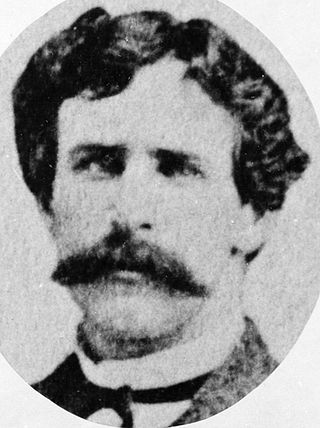
The 1872 South Carolina gubernatorial election was held on October 16, 1872, to select the governor of the state of South Carolina. Franklin J. Moses, Jr. won the election as a Radical Republican against the more moderate faction of the Republican Party and became the 75th governor of South Carolina.
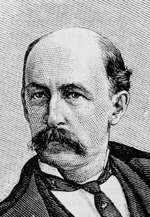
The 1874 South Carolina gubernatorial election was held on November 3, 1874, to select the governor and lieutenant governor of the state of South Carolina. Daniel Henry Chamberlain won the election and became the 76th governor of South Carolina.
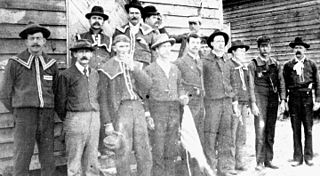
The Red Shirts or Redshirts of the Southern United States were white supremacist paramilitary terrorist groups that were active in the late 19th century in the last years of, and after the end of, the Reconstruction era of the United States. Red Shirt groups originated in Mississippi in 1875, when anti-Reconstruction private terror units adopted red shirts to make themselves more visible and threatening to Southern Republicans, both whites and freedmen. Similar groups in the Carolinas also adopted red shirts.

The 1880 South Carolina gubernatorial election was held on November 2, 1880 to s elect the governor of South Carolina. Johnson Hagood was nominated by the Democrats and ran against L. W. R. Blair, a Greenback-Labor candidate. Hagood easily won the general election and became the 80th governor of South Carolina.

Solomon Lafayette Hoge was a lawyer, soldier, judge and politician in Ohio and South Carolina.

This is a selected bibliography of the main scholarly books and articles of Reconstruction, the period after the American Civil War, 1863–1877.

Richard Howell Gleaves was a lawyer, merchant, and politician who served as the 55th Lieutenant Governor of South Carolina from December 7, 1872 to December 14, 1876. He served under Governors Franklin J. Moses, Jr. and Daniel Henry Chamberlain. A Haitian-American of mixed ancestry, Gleaves was notable as one of the highest elected black Americans during the Reconstruction Era.
James Henry Harris was an American civil rights advocate, upholsterer, and politician. Born into slavery, he was freed as a young adult and worked as a carpenter's apprentice and worker before he went to Oberlin College in Ohio. For a time, he lived in Chatham, Ontario, where he was a member of the Chatham Vigilance Committee that aimed to prevent blacks being transported out of Canada and sold as slaves in the United States.

The lily-white movement was an anti-black political movement within the Republican Party in the United States in the late 19th and early 20th centuries. It was a response to the political and socioeconomic gains made by African-Americans following the Civil War and the Thirteenth Amendment to the Constitution, which eliminated slavery and involuntary servitude "except as punishment for a crime".















